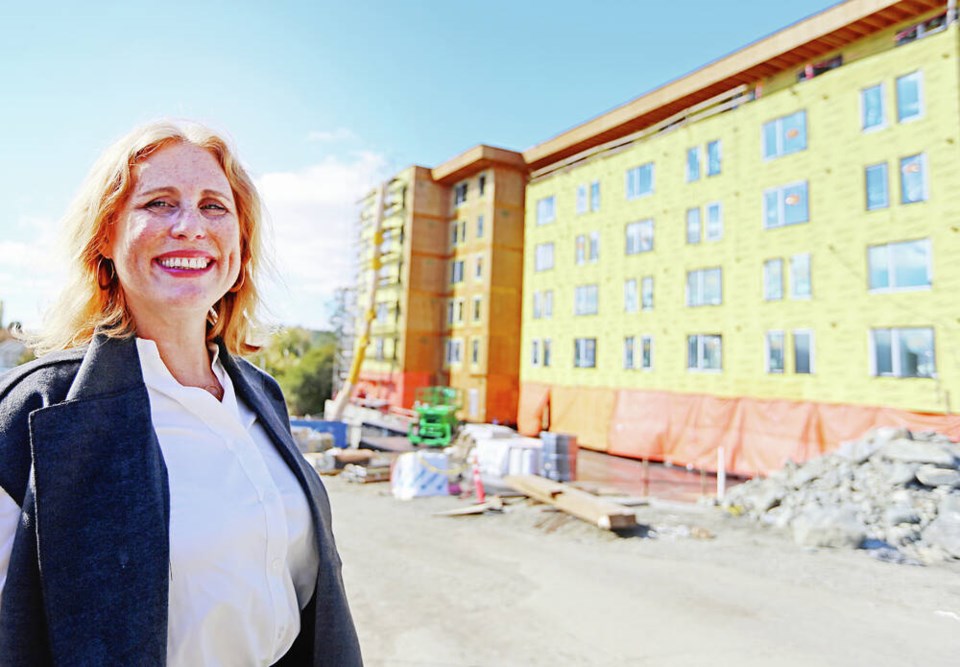Times Colonist
The capital region earned a “D” for housing in the latest Vital Signs Survey by the Victoria Foundation — the lowest letter grade of the 12 subjects covered in the survey, released Thursday at the Victoria Conference Centre.
Sixteen per cent of the region’s 67,695 renter households spend more than half their income on rent and utilities, the survey says, while eight per cent live in overcrowded conditions and six per cent live in places needing major repairs.
It says the two-bedroom rental wage — the hourly wage needed for a full-time worker to rent a two-bedroom suite for no more than 30 per cent of their income — is the fourth-highest of Canada’s 37 census metropolitan areas, at $34.85 an hour.
The survey is an “annual community checkup” of Greater Victoria. It’s based on feedback from 5,139 citizens who weighed in via a research panel or a website link. The data are considered accurate to plus or minus 1.33 per cent, 19 times out of 20.
Besides housing, the survey looks at categories such as arts and culture, environmental sustainability and learning, each of which earned a B, the highest marks the region received.
Health and wellness received a B-, with the survey noting Greater Victoria had Canada’s second-longest walk-in-clinic wait time in 2022 at 137 minutes. That’s a slight improvement from 2021, when it had the highest wait time in Canada at 161 minutes.
The average walk-in-clinic wait time in 2022 in B.C. was 79 minutes.
Greater Victoria Housing Society executive director Virginia Holden said she wasn’t surprised the region earned a “D” for housing. Last year, it earned an “F” in the category.
Holden said the chronic shortage in affordable housing stems from the federal government stopping significant funding for housing 30 years ago. “So now we have a huge infrastructure deficit.”
In addition, for many years, communities weren’t keen on increasing housing density, Holden said. “People didn’t want to see multi-unit buildings in their neighbourhood or secondary suites next door.”
Now reality is sinking in that housing is a primary need and communities need all types of housing, not just single-family dwellings, to accommodate growth, she said.
Lack of affordable housing is in some cases preventing people who grew up in the capital region from being able to move back to the area, while businesses are having difficulty attracting workers in part because of the high cost of housing, Holden said.
“That doesn’t make us a very vital or thriving community.”
Holden said she was happy to see the province setting home-building targets for some municipalities last month — which she called “glimmers of hope” — and applauded the provision of funding from both the province and the federal governments for groups such as her non-profit society “to build those needed, very scarce low- and moderate-income units.”
The society is currently involved in a $50-million housing project that will provide 137 low- and moderate-income units in Esquimalt at Craigflower Road and Fleming Street, set for completion next fall.
Overall, the society oversees close to 1,000 units targeted to those with low and moderate incomes, Holden said.
In the category of environmental sustainability, the survey found 29 per cent of residents in the Victoria census metropolitan area engaged in activities linked to environmental conservation or protection in 2019, up from 25 per cent in 2015 and above the 2019 provincial benchmark of 26 per cent.
Under arts and culture, it noted that the Capital Regional District distributed a record $2.6 million in arts-related grants in 2022.
Survey respondents named cost of living, housing, homelessness and health care as the most important issues in the capital region, while they listed natural environment, climate, air quality and parks as the best things about the region.
>>> To comment on this article, write a letter to the editor: [email protected]



